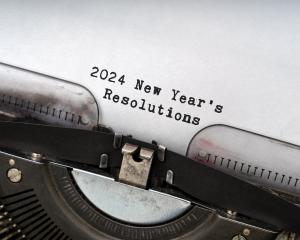

But the sunflower lanyard is beginning to lose its significance. It has been hijacked by anti-maskers, anti-vaxxers, and Covid conspiracy theorists who buy counterfeit or copycat versions of the lanyards and wear them in public to signify they are exempt from wearing a mask or socially distancing themselves. Selfish and irresponsible people like actor Laurence Fox have flooded online forums and social media pages, informing other Covid-deniers that they, too, can flout basic communal responsibilities by abusing the sunflower lanyard scheme.
The sick genius of this appropriation is that there is no way of discerning in real life between people who have legitimate hidden disabilities and those who are pretending to be medically exempt from wearing masks.
I will never judge anyone wearing a sunflower lanyard. For all I know, they are making genuine use of the scheme. They may not wear a mask because of a physical or mental illness or impairment. Alternatively, wearing the mask may prompt severe anxiety. Or perhaps they are assisting someone who relies on lip reading, clear sound, or facial expressions to communicate.
But the misuse of the lanyard by people who just don’t feel like wearing a mask is slowly but surely delegitimising the symbol. People with hidden disabilities already face huge stigmatisation, especially when they need extra time, assistance, or accommodations in public.
In fact, I have put off wearing my sunflower lanyard ever since I realised that anti-maskers were using them to flout masking rules. But I finally wore mine again the other day, because in a cloud of brain-fog, fatigue, and fibromyalgia, I realised that I needed to make use of the disabled seating on a crowded bus. I was so tired and disoriented that I could barely hear what the driver was saying. I knew that I would probably trip if I tried to climb the stairs to the top level. Wearing my sunflower lanyard, I felt justified in using the empty disabled seat.
I try my hardest to distance myself from the anti-maskers, wearing my mask in all public spaces, even though it’s not mandatory here in England any more. If I wear a mask with my sunflower lanyard though, I receive many weird looks. A woman in the supermarket stopped me to ask why I was wearing a mask, given that the sunflower lanyard strung around my neck meant that I was exempt. People don’t seem to understand that those who legitimately wear the sunflower lanyards often are immunocompromised and therefore choose to wear a mask as they are at higher risk of developing Covid-related complications.
I also paid for an additional information card, to further distinguish my lanyard from those of the anti-maskers. The card’s front reads “I have fibromyalgia”, while the back contains my photograph, details, an emergency contact, and the message: “I have persistent widespread pain and fatigue so may need to rest. I can become confused and have trouble communicating with you. Please be patient, and do not touch me as it may cause me pain.” But I shouldn’t have to disclose personal medical details in order to be believed and have my access needs respected.
I am not advocating that anyone criticise or confront people wearing sunflower lanyards. But I want to encourage people who are appropriating the symbol to truly consider the community they are harming. Perhaps I am being unrealistic here. The majority of people I’ve seen online discussing their plans to use and abuse the lanyard also hold anti-vaccination and anti-lockdown views. They care not a whit for disabled people, viewing us as inconvenient, attention-seeking, and expendable in this pandemic.
Covid deniers and anti-maskers seem to be utterly obsessed with “freedom”. There’s a post making the rounds on Instagram that reads “Just picked up my sunflower lanyard so I don’t have to wear a mask. My disability? A serious case of loving freedom.” It’s disgustingly ironic that the appropriation and bastardisation of the sunflower symbol directly impacts the freedom of disabled people to exist and function in public. Disabled people are disproportionately affected by Covid. Clearly this “freedom” doesn’t apply to us.
I worry that this article in itself is going to further the problem. But at this point I am so angry and frustrated, I can’t help but speak out. I hope that this article also helps raise awareness of the sunflower scheme and emphasises the importance of being kind and understanding, accommodating people’s access needs, and not judging someone’s capabilities on appearance alone.
I also hope that by drawing attention to this issue, I can encourage online bystanders to speak up when they see or hear people proposing the misuse of the sunflower lanyard as a way of avoiding masking responsibilities.
It’s incredibly ironic that people’s selfishness and co-opting of a symbol designed to help people with hidden disabilities may lead to them actually developing their own invisible illness—namely long-Covid.
They might even come to legitimately need a sunflower lanyard. One might call this poetic justice, but truly, I wouldn’t wish a disability like ME/CFS or long-Covid on anyone, even a Covid-denier.
It’s disheartening and frustrating to not only exist with an invisible disability — having countless people constantly doubting or invalidating your condition — but moreover, to see a symbol intended to bring validation and visibility to people like me completely hijacked by Covid-deniers and anti-maskers.
- Jean Balchin, a former English student at the University of Otago, is studying at Oxford University after being awarded a Rhodes Scholarship.












